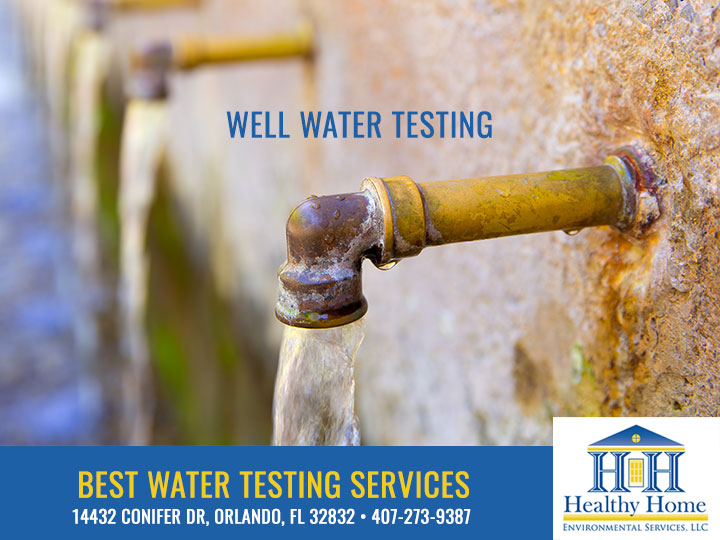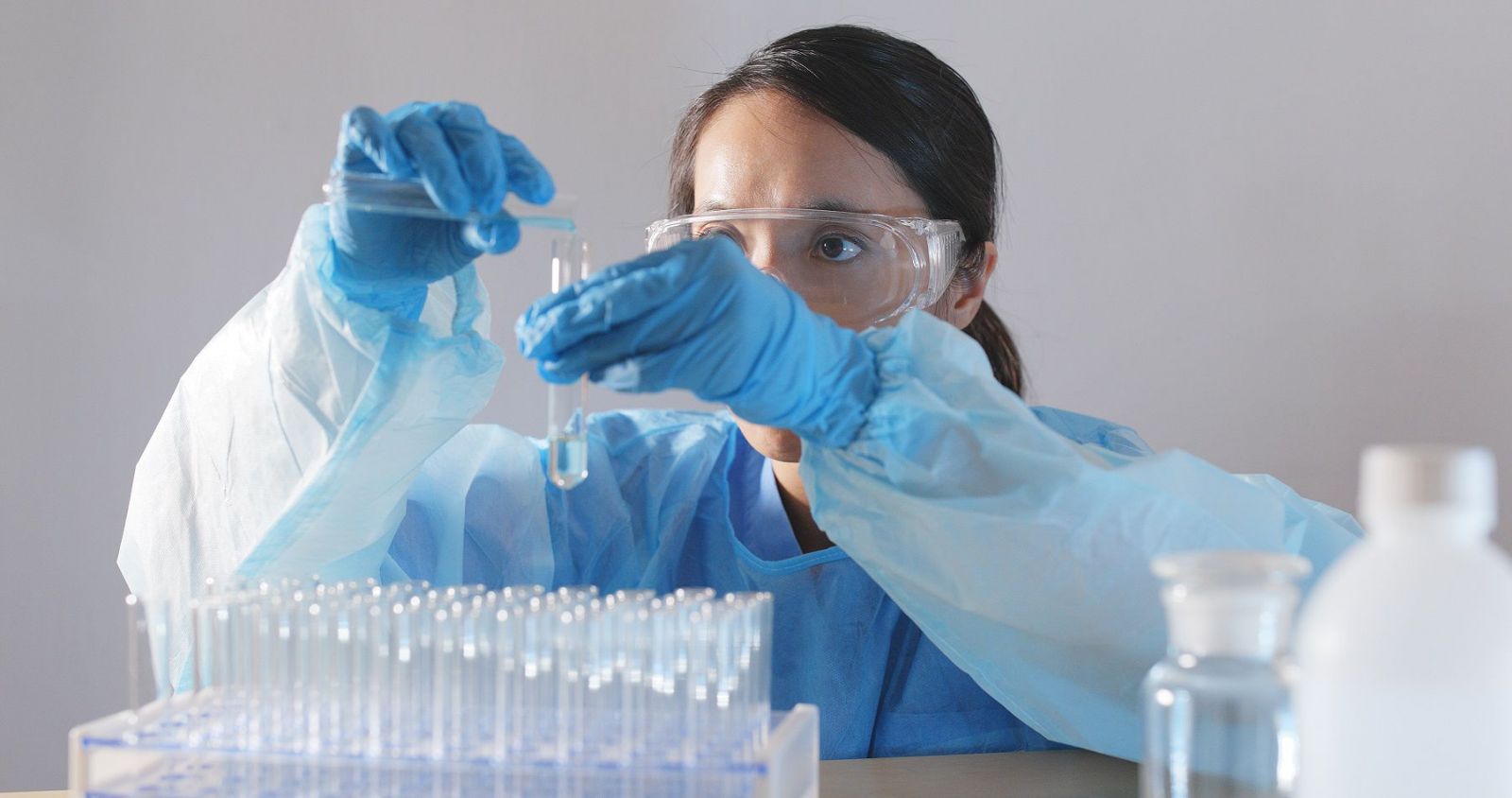Learn Exactly How Water Screening Can Discover Pollutants and Protect Your Family members's Well-being
Recognizing the importance of water testing is essential for securing your family's health, as our water system can nurture unseen threats. From microorganisms to heavy metals, impurities pose severe dangers, commonly undetected without proper evaluation. By exploring the mechanics of water testing, one can discover the invisible dangers lurking in apparently excellent water resources. Yet, exactly how do you figure out which tests are necessary for your house, and what steps should be taken once possible threats are exposed? As we browse these inquiries, the course to making sure water security and a healthier living atmosphere ends up being more clear.
Importance of Water Examining
Acknowledging the crucial role water plays in maintaining life, the significance of water screening can not be overemphasized. Guaranteeing that water is free from unsafe substances is crucial for preserving healthy neighborhoods and communities. Water Tesing Services Orlando.
Water screening works as an aggressive step to recognize possible risks that may jeopardize water quality. With organized evaluation, it helps discover physical, chemical, and biological parameters that could pose dangers to human health and wellness. Normal testing enables the early detection of concerns, assisting in prompt treatments to stop prevalent contamination and linked illness.
Moreover, water testing sustains regulatory conformity, ensuring that water providers meet established safety standards and guidelines set by governmental authorities. It fosters openness and liability, constructing public trust fund in the water system. Screening gives important data that notifies water management methods, enabling lasting use and preservation of this valuable resource.
Essentially, water screening is an essential device that safeguards public wellness, ensures regulatory adherence, and promotes the sustainable administration of water sources. Its importance in protecting both neighborhoods and people can not be undervalued.
Common Water Pollutants
Among the various components that can jeopardize water top quality, usual water impurities consist of an array of physical, chemical, and organic materials that posture substantial dangers to human health and wellness and the atmosphere. Physical contaminants often include debris or organic materials put on hold in water, which can influence quality and preference.
Biological contaminants, primarily bacteria, infections, and protozoa, emerge from human and animal waste entering water systems. Microorganisms such as E. coli, Giardia, and Cryptosporidium are notorious for creating intestinal health problems and can be particularly dangerous to little ones, the senior, and those with jeopardized body immune systems. Nitrites and nitrates, often originating from plant foods, posture one more health and wellness threat, specifically to infants, potentially bring about conditions like methemoglobinemia or "blue infant syndrome."
Additionally, arising impurities, including drugs and individual care items, have raised issues due to their determination and unidentified lasting effects. Comprehending these pollutants is important for carrying out effective water treatment approaches and guaranteeing secure drinking water.
Just How Water Screening Works
Comprehending the spectrum of pollutants in water emphasizes the value of efficient screening approaches to protect public health. Water testing is a methodical procedure developed to determine and evaluate various pollutants that could pose dangers to human health and wellness.
Once examples are gathered, they go through research laboratory evaluation making use of numerous techniques. Chemical screening usually includes spectrometry or chromatography, both of which can determine and measure particular chemical substances. For microbiological screening, approaches such as membrane layer purification or enzyme substratum examinations are made use of to find pathogenic bacteria. Furthermore, physical characteristics like ph, shade, and turbidity are assessed to supply understanding right into the total top quality of the water.
The my latest blog post accurate approaches utilized in water screening depend upon the details impurities of worry and the water's meant use. By constantly applying these strenuous screening procedures, researchers and public wellness officials can make certain the security and high quality of water, thereby safeguarding communities from prospective wellness threats.
Picking the Right Examination
The first step is analyzing the water resource-- be it municipal, well, or surface area water-- as each has unique dangers. Metropolitan water could need testing for disinfectant byproducts, while well water may require screening for nitrates, bacteria, and heavy steels.
Next, consider ecological elements and recent events. Nearby farming activities might demand screening for chemicals and herbicides, whereas industrial areas might call for look for chemical contaminants. Additionally, any kind of changes in water look, odor, or preference must prompt particular testing for usual impurities like lead, chlorine, or biological pathogens.
Professional water screening solutions use extensive kits that target a vast array of prospective pollutants. These packages commonly align with standards set by the Environmental Protection Firm (EPA) or local wellness divisions. For an extra customized approach, seeking advice from a water quality professional can offer understandings right into which specific tests are necessary based upon regional issues and specific wellness requirements, guaranteeing the defense of your home's health.

Keeping Water Safety

In addition to testing, correct maintenance of water systems plays an essential duty. This consists of inspecting and servicing plumbing systems, storage space tanks, and septic systems to avoid leakages or backflow that can introduce contaminants - Water Testing Services Near Me. Utilizing water purification systems created to attend to particular neighborhood issues can even more protect against pollutants, giving an additional layer of defense
Public recognition and education are similarly vital in keeping water safety and security. Areas must be educated regarding potential threats connected with neighborhood water sources and the needed steps to minimize them. Motivating public engagement in water security initiatives cultivates a collective obligation that enhances overall performance.
Ultimately, a comprehensive approach that incorporates normal screening, system maintenance, and area involvement is essential in protecting water high quality. By doing so, family members can be ensured of secure and clean water, protecting their health Continued and wellness.

Verdict
Routine water testing is crucial for determining pollutants such as germs, hefty metals, and chemicals that pose wellness threats. By evaluating water examples, hidden threats can be identified, guaranteeing the provision of risk-free alcohol consumption water.
Comprehending the significance of water testing is vital for securing your family's wellness, as our water supply can nurture hidden dangers.Water see screening serves as an aggressive action to identify prospective risks that may endanger water top quality.Additionally, water testing supports regulative conformity, making certain that water providers satisfy well-known safety and security standards and guidelines established by governmental authorities. Metropolitan water may require testing for disinfectant by-products, while well water may require testing for nitrates, bacteria, and hefty metals.
Routine water screening is an important part in keeping the quality of water sources, enabling timely treatments before impurities reach dangerous levels.
 Anna Chlumsky Then & Now!
Anna Chlumsky Then & Now! Brandy Then & Now!
Brandy Then & Now! Freddie Prinze Jr. Then & Now!
Freddie Prinze Jr. Then & Now! Elin Nordegren Then & Now!
Elin Nordegren Then & Now! Ryan Phillippe Then & Now!
Ryan Phillippe Then & Now!